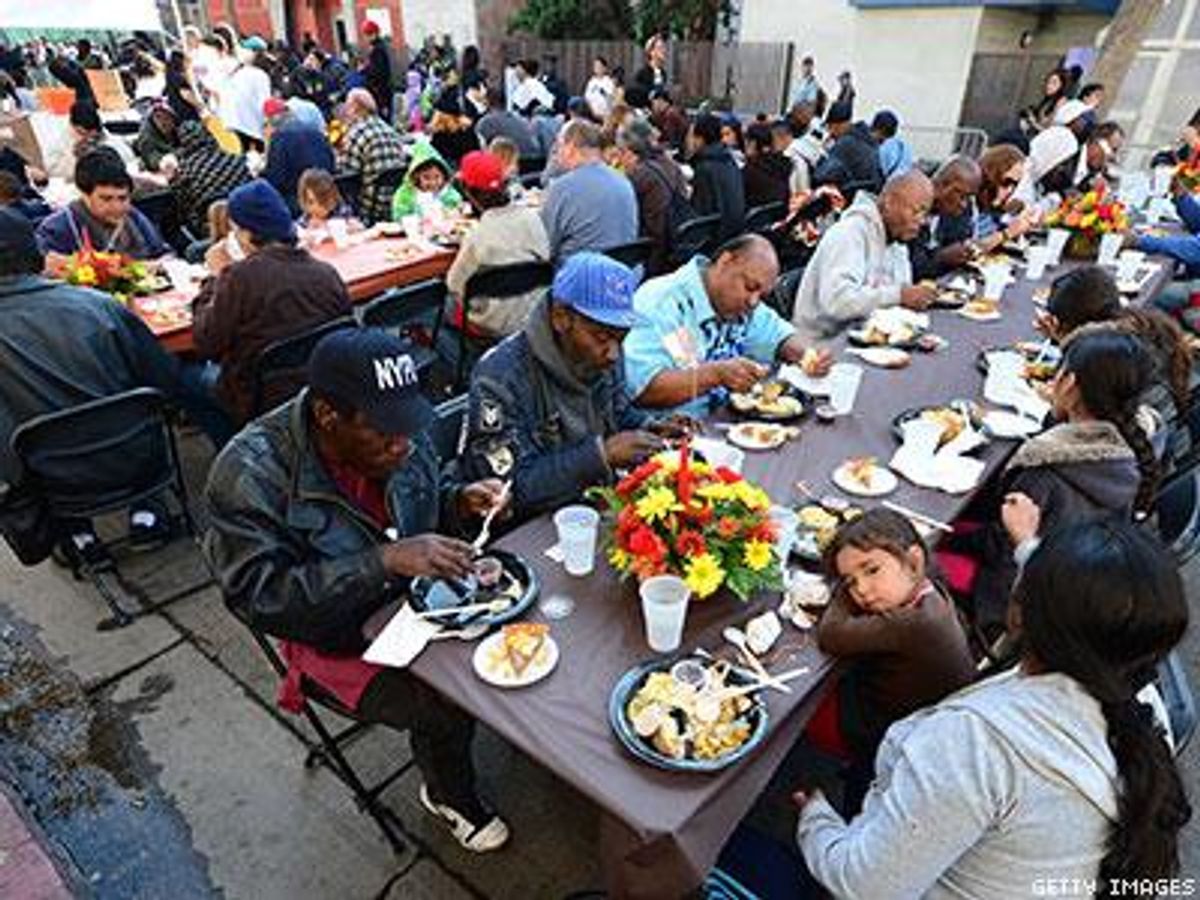Homeless transgender and gender-nonconforming people can breathe a little easier after a long-awaited announcement Friday: the federal government has issued guidance to all shelters and transitional housing programs to allow residents access based on their self-determined gender.
Though not binding regulations, this decision from the department of Housing and Urban Development is a significant step in the right direction, according to the National Center for Transgender Equality.
Trans and gender-nonconforming people are not to be asked intrusive questions about their bodies or medical histories, according to HUD's guidelines. They also cannot be denied access to a shelter based on their gender identity or on another person's discomfort with trans people. HUD also recommends that programs provide accomodation for trans residents on an individual basis for safety reasons, notes NCTE.
Generally, as much as an estimated 40 percent of homeless youth in America identify as LGBTQ. Access to safe emergency housing is critical for trans people, a population in which nearly one in five (19 percent) people will be homeless at some point in their lives, according to NCTE's 2011 National Transgender Discrimination Survey. The study also found that nearly half of trans shelter residents left because of poor treatment, including harassment, sexual harassment, and being housed with the incorrect gender, with 29 percent being turned away outright.
"We've seen and heard of numerous cases in which transgender women were admitted to a women's shelter -- maybe after spending all day just searching and waiting for a shelter bed -- only to have, late at night or the next day, staff kick them out because someone questioned their gender," Harper Jean Tobin, NCTE's director of policy, explained to Zack Ford of ThinkPogress. "With bitter cold around the country, we welcome this guidance and urage all shelters to follow it."
However, NCTE notes, shelters are only a temporary solution for the larger issue of homelessness, which the group is working to eradicate.
A recent report from the Movement Advancement Project and Center for American Progress found that trans people are four times more likely to live in poverty than nontrans people, which is a major risk factor for homelessness. Federal policy changes are, according to MAP and CAP, one of the keys to addressing the trans population's economic disparity, and NCTE has also called on HUD for more changes, such as clarifying that their new guidelines apply, by law, to all forms of housing under the Fair Housing Act and HUD program regulations.













































































